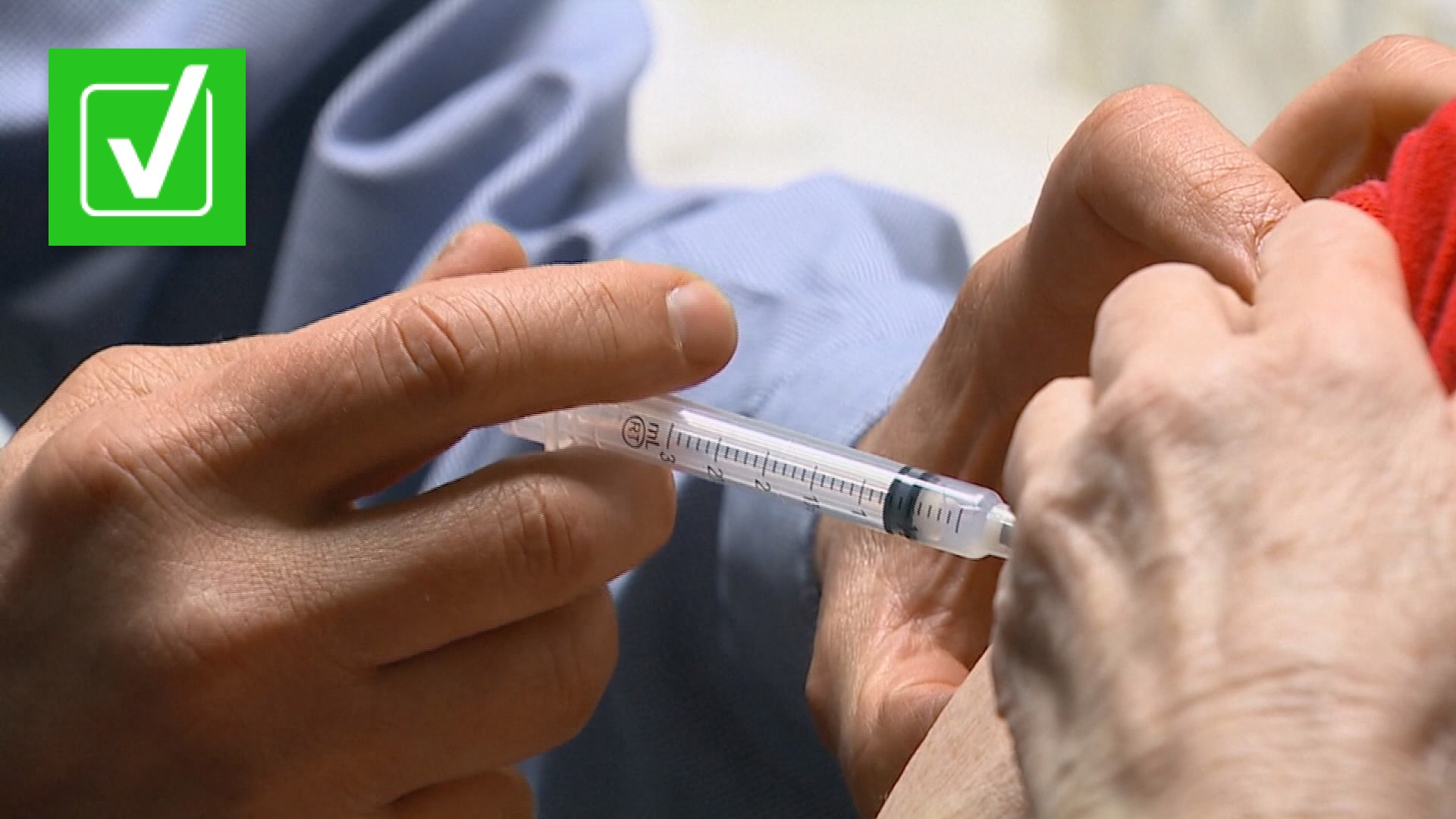GRAND RAPIDS, Mich. — The CDC expanded the list of people eligible for COVID-19 booster shots on Friday, urging new groups of individuals to get a dose.
New data shows the vaccine remains effective in preventing severe cases of the virus but may be less effective at preventing infection or milder symptoms, according to their report.
This lower effectiveness is likely due to the combination of decreasing protection as time passes since getting vaccinated, as well as the greater infectiousness of the Delta variant, the organization added.
13 ON YOUR SIDE viewers wrote in and asked if since they are fully vaccinated and developed additional antibodies from having the virus, do they still need a booster shot.
THE QUESTION
If you are fully vaccinated and you get COVID-19, should you still get a booster shot? Or did you build up immunity by having COVID?
THE SOURCES
- The Centers for Disease Control and Prevention (CDC)
- Dr. Del DeHart, University of Michigan Health-West infectious disease physician and lead their on infection prevention group
THE ANSWER
Yes, you should still get the booster shot no matter what. You will have built up immunity, but doctors are still trying to find out how long that resistance stays as strong as when you first received the vaccine. When it comes to immunization, it is better to be overprepared.
WHAT WE FOUND
Many vaccines, like Td for diphtheria, TdaP for whooping cough and even the flu shot require booster shots to keep the body as strong as possible. The CDC states that "For some vaccines, after a while, immunity begins to wear off."
"The COVID vaccination is probably more long-lasting," Dr. DeHart said. "People that got COVID more recently seem to be very well protected from even the newer variants that are out there."
People who developed the virus while being fully vaccinated are in a much better position to fight the virus, the specialist added.
"Getting COVID, even if you've had the booster, is like getting a good booster from any other source," he said.
However, that is only for right now. There is not enough data on how strong the vaccine's resistance is long-term, since boosters only started becoming widely available for select groups in September.
"So to me, that question is more along the lines of 'when should you get the booster' rather than 'should you get it' because the goal is just to extend that immunity," he said. "The recommendations are you can get it anytime after you've recovered from COVID. But I think the more reasonable way to look at that would be [to] wait three months to six months to get it assuming it's going to work as well as the booster did. Some early studies show that that is true.
"When the initial shot came available, and we knew that it would work, we certainly weren't going to wait until we knew how long it would work to begin to immunize people. It's really not surprising that these shots are going to require boosters."
The risk for COVID is still high right now, so what the boosters are doing is basically letting the body know to pay attention to the virus and to make antibodies. That way, if exposed, the immune system reacts quickly.
"What we won't know then, of course, is after you've gotten the booster or you've gotten COVID infection, are you protected then another six months?" he asked, rhetorically. "Or might that be a lot more robust and lasts for a year or two? I wouldn't be surprised if that was true."
The COVID vaccines and their boosters are proven to be safe and effective against the virus.
"I don't think we've had, in modern times, anything perhaps since the AIDS epidemic that played out in the public as much as this has," he added. "Work and medicine and science grows as we learn more data, and there have been some mistakes made in what public health officials have said," he said. "So, understandably, some people are skeptical about some of the things as any reasonable adults should be. But the information around the vaccines now is so clear that I don't think there's a lot of room for wondering if people know what they're talking about — we clearly do.
"We have millions and millions of people all over the world who have been protected from COVID safely from this. So I think that's clarifying quite clearly and you're just seeing it happen in real-time."
Those who had the two-dose Moderna vaccine are eligible for a booster if they are 65 or older. Those who are 18 and older who live in a long-term care setting, have underlying health conditions or who work or live in a high-risk setting are also eligible. This includes health care, education and people in jail or homeless shelters. Boosters are recommended six months after the original vaccination.
For those who received the Johnson and Johnson one-dose vaccine, a booster is recommended for everyone 18 and older at least two months after vaccination.
The FDA's authorization included the flexibility of "mixing and matching" vaccines. For example, someone who had the two-dose Pfizer vaccine may be eligible for a booster of Moderna.
►Make it easy to keep up to date with more stories like this. Download the 13 ON YOUR SIDE app now.
Have a news tip? Email news@13onyourside.com, visit our Facebook page or Twitter. Subscribe to our YouTube channel.

